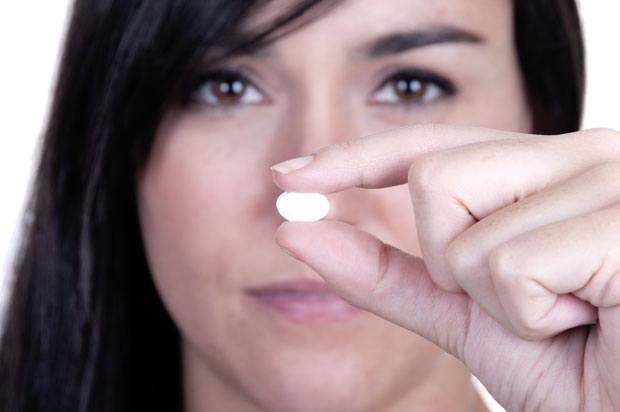Should I take antidepressants?
So you’ve been prescribed antidepressants but you’re not feeling so great about it. Should you take them? Do you feel confident about why you’re taking them? We spoke to Dr Lars Davidsson, psychiatrist and medical director of the Anglo European Clinic, to find out what you should know before you start.

Make sure you feel confident about what the doctor's told you.
Firstly, what happened at the doctor’s appointment?
You went to see your GP about feeling low, or anxious, and you’ve come out with a prescription for antidepressants. How you feel about taking them will depend on what happened in that appointment.
Psychiatrist Dr Lars Davidsson says it’s important the following happened:
- You felt listened to and understood
- They asked you in detail about your thoughts and feelings
- You were given a diagnosis
- You were offered CBT or another form of talking therapy alongside your medication
- The side-effects of the medication and how long it takes for it to work were thoroughly explained to you
“If a doctor has recommended you take antidepressants than my opinion is yes, you should probably take them,” says Dr Lars. “But you should also be referred to get some kind of therapy alongside the prescription too.”
Why is a diagnosis important?
“In instances of mild depression, you shouldn’t be prescribed antidepressants at all, but offered some kind of CBT,” says Dr Lars. “If you have moderate depression, you should be prescribed both therapy and antidepressants.”
In mild depression, research shows antidepressants have no more benefits than a placebo.
What if I’m offered antidepressants but no therapy?
If you feel relieved about being given antidepressants there’s no reason not to try them. Lots of people find them helpful.
But if you’re feeling confused, unsure about what exactly is wrong with you, or just that you need to talk to someone, then go back and ask to see another GP. Ask them what talking treatments are available in your area and ask to be referred.
“There’s really no reason why you should be advised to just take medication with nothing alongside it,” says Dr Lars. “If that happens, it’s usually down to a lack of resources or the GP’s lack of experience. Don’t be afraid to ask to be referred to a psychiatrist.”
If you’re having problems getting the support you feel you need, read our article here.
What about the side-effects of antidepressants? Aren’t they really awful?
It’s important your GP tells you about any possible side-effects and what you can expect. Some people take antidepressants and have no trouble, but others find they feel sick or sleepy, or even more depressed.
It’s important to bear in mind that you can experience side-effects within days of starting treatment, but it usually takes at least a couple of weeks for the medication to start working. In the meantime, you’re in no-mans-land: feeling worse without anything to help.
That’s why you should feel confident about what to expect, how long side-effects may last, and what you can do if you really struggle with them. It makes it less scary, so ensure you’ve had this conversation with your GP.
Side-effects and young people
There’s evidence that a type of antidepressant called SSRIs can have worse side-effects (including causing suicidal thoughts) for young people, pregnant women and women who are breastfeeding. SSRIs, such as Fluoxetine, are regularly used for depressive disorders. If you feel suicidal, speak to your GP, go to A&E, or contact the Samaritans.
Are there any alternatives?
Talking therapies and CBT are the most common options if you don’t want to take antidepressants – although these can work better if you’re on medication, according to Dr Lars.
Another common alternative to antidepressants is the herb St. John’s Wort. Though ‘natural’, St. John’s Wort has side-effects and can interfere with other medication, like the contraceptive pill. You can find more information on the NHS website.
Your diet, exercise levels and the amount of sleep you get can all make a massive difference to your mood too.
So, should I take antidepressants?
It’s an entirely personal decision, but if you’ve been prescribed them, it is recommended. “At the end of the day, it’s up to you,” says Dr Lars. “But if the doctor prescribed you medicine for diabetes or low blood pressure, would you not take the medicine for that? I guess it comes down to ‘do you want treatment?’”
Next Steps
- Mind offers advice and support to people with mental health problems. Their helpline runs nine to six from Monday to Friday. 0300 123 3393
- Chat about this subject on our Discussion Boards.
By
Updated on 29-Sep-2015
Photo of girl with pill by Shutterstock
Sorry, comments closed
No featured article









